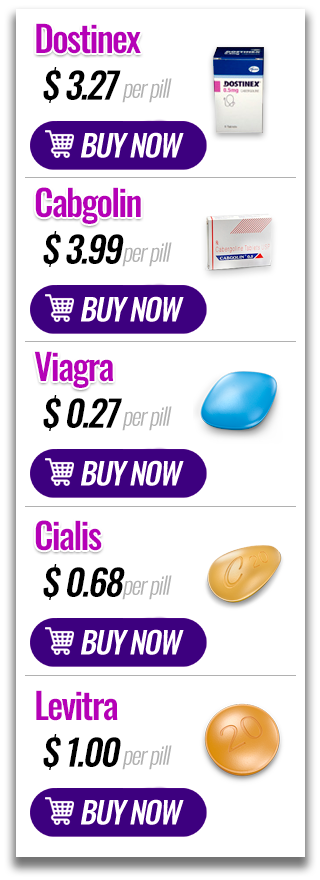 Dostinex is a dopaminergic agonist, known for its use in idiopathic Parkinson’s disease, which has the particularity of having a selective affinity for D3 receptors of the mesolimbic pathway. Since the role of dopamine has been demonstrated in the pathophysiology of depression, studies have focused on the antidepressant action of cabergoline and have demonstrated efficacy comparable to that of a selective serotonin reuptake inhibitor in the treatment of depression. treatment of unipolar depressive episodes.
Dostinex is a dopaminergic agonist, known for its use in idiopathic Parkinson’s disease, which has the particularity of having a selective affinity for D3 receptors of the mesolimbic pathway. Since the role of dopamine has been demonstrated in the pathophysiology of depression, studies have focused on the antidepressant action of cabergoline and have demonstrated efficacy comparable to that of a selective serotonin reuptake inhibitor in the treatment of depression. treatment of unipolar depressive episodes.
Because of the resistance to conventional treatments of certain forms of bipolar depression, several studies have tested the interest of less conventional therapeutics, especially cabergoline, in the treatment of refractory bipolar depressions. Current data on the antidepressant efficacy of this treatment in resistant bipolar depressions are few, and seem however in favor of significantly higher response rates and remission and earlier (from the third week) in comparison with conventional antidepressants or a placebo. We will detail the literature data concerning bipolar depressions. The mean daily dose between studies was 0.5mg with a good tolerance profile, which was confirmed by long-term follow-up studies. However, the small number of studies conducted did not provide information on the clinical profile of patients who could benefit from this type of treatment. Because of its central selective agonist action on a pathway involved in motivational and rewarding processes, it can be assumed that certain depressions characterized by apathy and emotional hyporeactivity are more likely to respond well to this treatment. To confirm this hypothesis, we will present a series of clinical observations in patients with bipolar depression, for whom we have evaluated the efficacy of Dostinex on depression symptoms.
Connection between depression, sexual dysfunction and Dostinex
Depression and schizophrenia are accompanied by sexual dysfunction that can be aggravated by antidepressants and antipsychotics, often leading to treatment. Strategies to reduce these deleterious effects of psychotropic drugs are:
- reduction of the dosage;
- replacement of selective reuptake inhibitors of serotonin (SSRI), which delays ejaculation, with moclobemide, trazodone, bupropion or mirtazapine; or antipsychotic treatment with quetiapine, olanzapine or aripriprazole which have no effect on prolactin;
- a temporary stop (one or two days of the psychotropic)
- the addition of an erection-promoting drug (sildenafil) or, in the case of hyperprolactinemia, a partial (aripripazole) or complete dopaminergic agonist (cabergoline).
Prolactin inhibition and depression
Dopamine inhibits the secretion of prolactin, which is increased by neuroleptics (because of their anti-dopaminergic action). Prolactin inhibits the secretion of gonadotropin-releasing hormone and sex steroids. It rises slightly (from 6.4 to 10 ng / ml) during acute administration of SSRIs (fluoxetine) but not during chronic treatment. However, levels of L16.5 μg / ml are measured in 20% women treated with fluoxetine. Tricyclic ADs do not increase prolactin with the exception of clomipramine and amoxapine, which have an anti-dopaminergic effect. Fluoxetine does not affect the secretion of LH or that of testosterone. Citalopram injection i.v. increases prolactin secretion cortisol but not during oral administration of other ISSRs, venlafaxine and mirtazapine do not increase the secretion of prolactin.
 These studies show that administered as a concomitant line of therapy in patients with depressive disorders of various etiology, Dostinex helps restore normal prolactin levels which has beneficial effects of two kinds:
These studies show that administered as a concomitant line of therapy in patients with depressive disorders of various etiology, Dostinex helps restore normal prolactin levels which has beneficial effects of two kinds:
- It enhances brain-derived neurotrophic factor signaling thanks to its dopaminergic mechanism of action;
- Regulates sex drive in patients of both sexes and restores erectile capacity in male patients treated with antidepressants.

